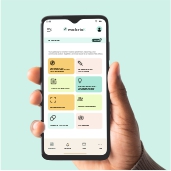Community Engagement
Community Engagement
Community engagement is one of the most powerful drivers in the fight against malaria because real prevention begins where people live, learn, and interact. While healthcare systems provide treatment and technical guidance, communities determine how quickly risks are identified, how widely prevention practices are adopted, and how effectively environmental challenges are addressed. The Community Engagement program within MalariaX empowers individuals to take ownership of malaria control through awareness, participation, and collective action.
The heart of community engagement lies in shared responsibility. When individuals understand how malaria spreads and what actions reduce the risk, they become active contributors rather than passive observers. Community members can report stagnant water, participate in cleanups, support vaccination campaigns, and monitor their surroundings for early signs of malaria. These everyday actions create healthier, safer spaces and significantly reduce the mosquito population. When a community acts together, the impact is far greater than isolated individual efforts.
Engagement also strengthens early detection. Families are often the first to observe symptoms such as fever, chills, fatigue, or unusual patterns in their neighborhood. When communities are encouraged to report cases through MalariaX, response teams can act faster and limit transmission. This rapid flow of information bridges the gap between households and health systems, ensuring that no case goes unnoticed. Community-driven reporting creates a culture of vigilance that prevents outbreaks from escalating.
Education is a major pillar of the Community Engagement program. The MalariaX platform provides simple and clear messages on prevention, bed net usage, environmental hygiene, and early treatment. Volunteers and local leaders also help translate health information into culturally relevant terms, making it easier for families to understand and apply. This form of education builds long-term habits that improve not only malaria control but overall community health.
Trust is another essential element. Communities respond more positively when engagement efforts are led by familiar faces such as local volunteers, teachers, faith leaders, or youth groups. These individuals help reinforce prevention messages, dispel misinformation, and encourage behavioral change. Trust also encourages families to participate in vaccination activities, report environmental hazards, and seek treatment early.
The Community Engagement program further promotes accountability. By involving local voices in discussions about sanitation, drainage, and environmental management, MalariaX encourages communities to hold themselves and their leaders accountable. This ensures that local authorities take environmental issues seriously and that community members feel empowered to speak up when conditions are unsafe.
Ultimately, malaria eradication requires a collective effort. The Community Engagement program turns everyday citizens into health champions who protect their neighborhoods, spread awareness, and strengthen surveillance. When communities understand their power and use it consistently, the foundation for lasting malaria control becomes strong and resilient.

 Our Programs
Our Programs
